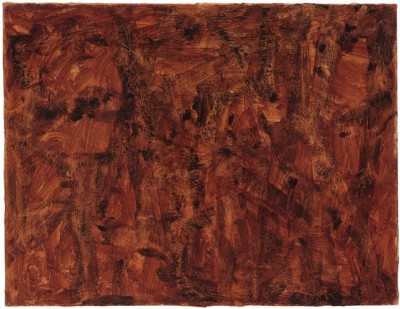Alejandra Montserrat González Romo: What makes this movement important?
Claire Pentecost: It has been decades since significant sectors of the American people have expressed themselves on this level outside the normalized circuits of discourse. I should add that this movement includes many people abroad, although mass protests are more common in many other countries. Interestingly, although the protests have yet to pinpoint demands, there is a coherence of feeling and message across cities that is unprecedented. Certainly communications technology has had a role in the viral uptake.
One of the features that is so interesting is that such a vital uprising has yet to articulate demands. Donella Meadows, the great systems thinker, wrote a piece called “Ten Ways to Intervene in a System” which catalogues levels of intervention — starting with those easiest to do but which have the least effect and moving up to the level of values and paradigms, which, if they can be changed, have the most profound effects. I am dreaming that people don’t want to just fiddle with the dials of a failed system — they want something entirely different, different at the level of the paradigm. No one can be sure what that is. Part of the movement is about formulating that vision together. I imagine a world in which the profit motive is not universally applied and the financialization of everything is not acceptable.
AR: Why are you participating in it?
CP: It’s fascinating! It’s a windfall for any curious, aware, concerned person. How does change happen in complex societies? We are witnessing an emergent phenomena that no one can predict or control. How can anyone resist?
AR: Could you tell us a little bit about the Modern Wing´s protest in which you got arrested? What was that experience like?
CP: The Columbus day protest culminated in front of the Modern Wing because conventions of mortgage bankers and futures traders were there attending a cocktail party. The target of the protest was this gathering, not the museum per se although the museum is marked as safe haven for elites.
The “civil disobedience” in which I participated was arranged in cooperation with the police. This is not uncommon in activist tool kits — the police get predictability and the organizers get media attention. The action was organized by the SEIU (Service Employees International Union) and many of the people I was arrested with were middle aged African American health care workers. It was like a performance, a ritual.
Civil disobedience has a long and honorable record as a form for expressing dissent. I am very fortunate that i am one of the least precarious people in our ruthless society ( I have tenure — an outrageous position of security founded on the belief that intelligent dissent just might benefit society!) and my security gives me the choice and ultimately the responsibility to express things that many people are too vulnerable to express.
AR: Do you expect Occupy Chicago to be especially transcendental compared to previous activism movements?
CP: I don’t expect anything to be transcendental. That is a fantasy. I feel a lot of anxiety because I fear this movement could evaporate tomorrow. There are no guarantees.
AR: What do you think of the coverage media has done of the movement?
CP: Now that the movement is established as newsworthy, the media has been increasingly perceptive, which I take as a symptom of the consensual rationality of the protest against systemic corruption. But I live in my selective media bubble. The push-button right wing media has responded predictably — with arrogance, ridicule, demonization and dismissal.
AR: Many the protesters are young students who are attending an extremely expensive education system that does not really offer job opportunities in return. What is your opinion about this?
CP: Don’t get me started. It’s like the housing bubble — people have made investments in a good that is overvalued. They will never be able to retrieve the money they have buried here. I have talked to my students about this for years. It is the scandal of education in the USA — how can it be perfectly acceptable for entities to make a profit off people’s need and desire to educate themselves? Especially when education is presented as the crucial basis for participation and agency? This must change. I recommend a massive, organized default.
Meanwhile, take an active role in whatever you consider to be your education and make sure it has a value to you in itself, because this voucher will not necessarily be honored on the job market.
AR: Do you see young people in general really connected to the movement? Interviewing students who are not involved in the movement, we have sensed and indifference and even a total lack of awareness of what Occupy Chicago means. What do you think?
CP: Our culture is loaded with “capture devices,” significant of which is the idea of career and individual success. Many young people are too preoccupied to occupy! They are preoccupied with resumes and career fantasies which are increasingly irrelevant to the world they are entering. Our mediated landscape is designed to keep us distracted. Break the spell!
AR: What is the importance of students and citizens in general to participate in these movements?
CP: Students in particular have a lot at stake because of the impending student debt crisis. But everyone has something at stake here and that is certainly the message of the 99% meme. In Detroit, the epicenter of American prosperity followed by systemic failure, people are fond of saying, “no one is coming to save our crazy butts,” i.e., we have to build a culture and a survival system that is self-sustaining. The point is that, in this economic, social and ecological crisis, none of these corrupt authorities are going to do what needs to be done. We have to do it for ourselves, and do it together.







